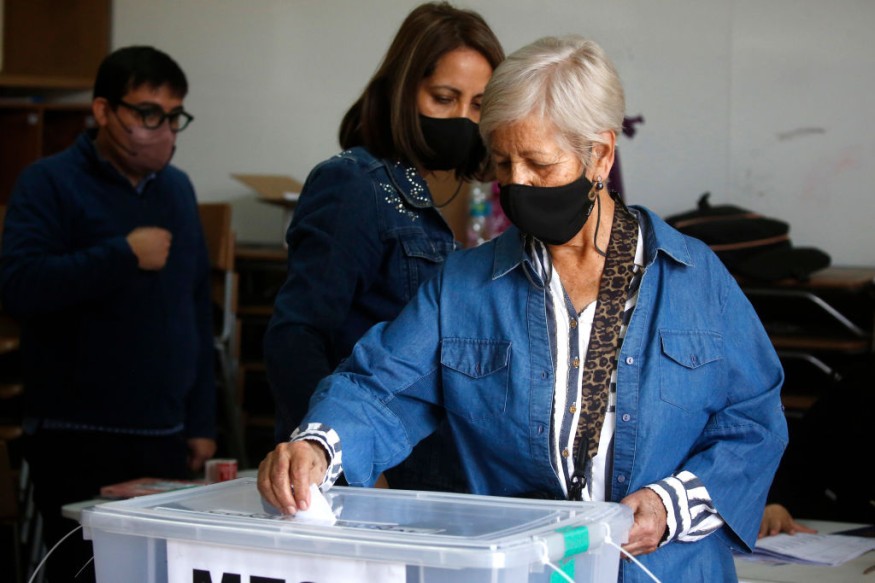Chile Constitutional Vote: Why Is It Called the World's Most Progressive Constitution?

Chile is preparing for a constitutional vote to either approve or slam down the country's new constitution, which was described as the "world's most progressive constitution."
It would replace the 1980 constitution created during the dictatorship of Augusto Pinochet. The Guardian reported Chileans head to the polls on Sunday to either approve or reject the new constitution.
Polls suggest that the new constitution may face a challenge in its passage. The Chile constitution has been criticized for its "verbosity and lack of precision," with many hoping that it will push forward the country to a "fairer future."
Crowds of people gathered in the center of Santiago on Thursday to watch politicians, public figures, and musicians deliberate the approval of the proposed constitution.
The drafted constitution champions gender parity, acknowledging the country's Indigenous people, and a response to climate change, among others.
A law professor at Florida University, David Landau, noted that Chile's draft is a "good constitution." The professor has been following the process closely.
Landau noted that there was nothing "radical" in the draft, adding that it shows the trends in "modern constitutionalism" while providing room for "innovative clauses."
Chile Constitution
The document runs to 388 articles, with many Chileans and outside observers being unclear about its contents and how it would change the country's economy, politics, and day-to-day life.
Americas Quarterly reported that one of the most showing changes to Chile's constitution is the end of the legislature's upper chamber. A "Chamber of Regions would then replace it."
The change was prompted by the claims of some drafters that the Chilean Senate was an "elitist chamber where reforms tended to stagnate."
Many of those involved in the constitution draft aimed for a single chamber, which would pass legislation more efficiently. Others said that it would "erode checks on power."
The new constitution also proposes the decentralization of power, giving new authority to regions, communes, and indigenous territories.
Occidental College professor Jennifer Piscopo noted that there was one united Chilean state, but with the decentralization of power, there will be kinds of autonomy.
There will also be changes over the water rights, with the new constitution declaring water rights "incomerciables," which roughly means "unsellable."
At present, Chile is the only country to declare water a private property in its constitution. The drafted constitution also calls for gender parity, mandating that all public institutions have at least 5% of women.
It would mean that men can be a minority, but women cannot. The indigenous issues of the country are also addressed in the drafted constitution.
Chile Constitutional Vote
Polls opened in Chile to allow voters to decide whether they wanted to adopt a new constitution. It was amended in light of the country's inequality and was written during a dictatorship.
According to CNN, many appear divided on the proposed draft. Back in October 2020 entry referendum, only 78% of Chilean voters supported the constitutional change. The proposed constitution was the first in the world to address gender parity, with provisions on indigenous rights.
Cristián Warnken, a Chilean literature professor and television interviewer, said they would want a new constitution with a State that ensures social rights while protecting the environment.
This article is owned by Latin Post.
Written by: Mary Webber
WATCH: Chile referendum: Vote on Whether to Replace Constitution - From Al Jazeera English
Subscribe to Latin Post!
Sign up for our free newsletter for the Latest coverage!

















